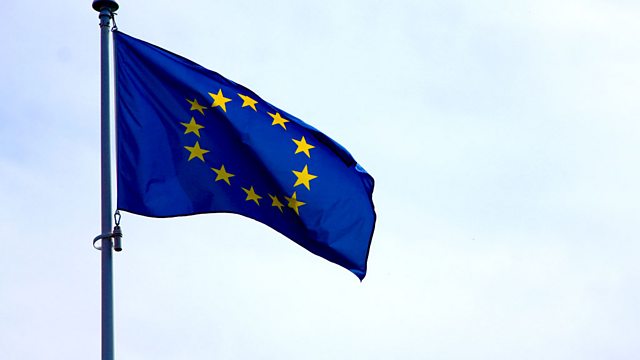
The European Dream
John Tusa tells the extraordinary story of how the European Union was born in fear, hope and crisis in the years after World War II and the Nazi occupation of the continent.
As the Eurozone lurches from crisis to crisis, John Tusa takes us back to the very start of the journey to the single currency: to the vision, and the realpolitik, that made European union happen in the first place.
In 1950, France and Germany, along with Italy, Belgium, Holland and Luxemburg, agreed to surrender national control over some of their most vital industries. Just six years after the Nazis had been driven out of Paris.
John traces how a highly unusual mix of vision and canny national self-interest drove a handful of leading statesmen to take this decisive step.
Robert Schuman was the French Foreign Minister - but had fought for the Germans in the First World War. Then, as a French politician and member of the Resistance, he narrowly avoided being sent by the Nazis to Dachau.
Konrad Adenauer, West Germany's first Chancellor, was proposing a form of European unity as early as 1923. Having survived the Nazi era, he was intent on sacrificing power to bind his pariah nation into the West - and keep it safe from Stalin.
More surprisingly, the idea of European union was also championed by Winston Churchill, in a rousing run of speeches across the Continent in the years after VE Day. The great patriot even advocated a European Army.
But John also explores why - once Churchill was back in power in 1951 - he chose not to join the emergent union.
Meanwhile, Churchill's wartime ally, America, was actively pushing the Europeans to unite - and was prepared to pay handsomely to ensure they wouldn't drag American troops into yet another war.
And John finds out how the whole project came to the brink of collapse within weeks of its birth. In June 1950, the Communists invaded South Korea. Western capitals panicked: was West Germany next? Was this the start of World War 3?
America demanded that West Germany be re-armed. But the French public were outraged, and took to the streets with large photos of Nazi atrocity victims held aloft.
John explores how the project was rescued, and how its strange fusion of realism and idealism presages the crises of today.
Producer: Phil Tinline.
Last on
More episodes
Broadcast
- Sat 17 Dec 2011 20:00大象传媒 Radio 4
